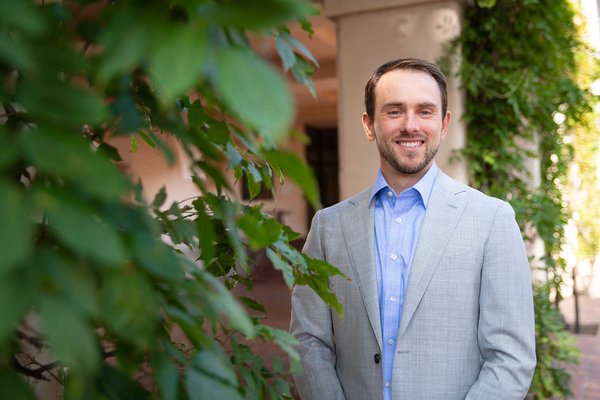When a crisis hits, often the only thing a person can control is how they react. This is true not only for individuals, but also for families, businesses and governments.
How governments respond to crises, especially financial crises, can have profound effects on their economies and the livelihoods of their constituents. For Pawel Janas, new assistant professor of economics at Caltech, understanding how governments respond to crises is also an academic quest. Janas is an economic historian who is interested in how local governments respond when faced with financial difficulties.
We recently spoke with him about his research, what brought him to Caltech, and the sport he plays semi-professionally.
Can you tell us about your research?
I consider myself an economic historian who also knows finance. For me, economics tells stories with sophisticated data and calculations, but I think it’s very dangerous for people to have the same story in their minds and never challenge it. Much of what economic historians do is revisit those economic stories that have been told over generations and see what we can learn from those episodes.
What are specific examples of things you study?
I research financial crises — what happens when there’s a huge downturn in the economy. So far my specific research interest has been the Great Depression and what happened when cities suddenly couldn’t pay their debts and became financially constrained. I want to see what cities and their administrations have done to deal with a financial crisis.
Why is this kind of research important? What can you learn that applies today by examining the events that happened during the Great Depression?
That’s a great question, but I think I want to come back to that. I don’t think all the research we do at Caltech should be about politics or relevant today, because we have no idea what the future holds.
But cities and counties are borrow a lot of money today, and we want to know what happens when financial markets freeze and they can’t borrow as much as they want. It’s going to happen at some point, and it turns out that the historical episodes give us the right environment and the right laboratory to examine these fundamental economic questions without having a very direct political implication for 2022.
When you look at how the Great Depression affected local municipalities, what do you see?
You see compromises. Cities have a variety of things they do, don’t they? They provide education; they provide the police; they provide fire protection; they paid welfare at the time, and they also built a lot of infrastructure. So cities do a lot of things, and of course they borrow their money and pay off those debts.
My research shows that the cities that were heavily indebted were also the same cities that cut public services and public goods that we expected them to continue to fund.
What are some of the projects you are currently working on?
I have three projects that deal with the Great Depression. The first project is what I just described with cities when they go bankrupt.
My second project concerns schools, again during the Great Depression. At the time, schools were funded primarily by local property taxes, and the Great Depression decimated the local property tax base, so schools were severely underfunded. This project examines which types of students continued to attend school during the Great Depression and which dropped out. I’m trying to understand the implications for these people later, if they went back to school and what their labor market outcomes were.
The third project looks at the question of what happens when banks close. During the Great Depression, banks in this region closed at a higher rate than similar-looking banks in other regions. This actually gives us a very nice experiment to study the effect of bank closures on economic activity.
How do you like to spend your free time?
My biggest and only hobby is playing Ultimate Frisbee, and I’ve been doing it for 15 years now. I played on my high school team in Colorado. I also played in college in Colorado, and when I moved to Chicago for my doctorate, I played on every Chicago club team and Chicago semi-pro team. Right now, I’m still traveling to play on the club team in Chicago.
What do you like about ultimate frisbee?
The fact that these mature adults spend a lot of money and time playing this game means that the community is very strong. I don’t know in what other area of life you will find a group of men and women in their late twenties and early thirties who spend a lot of money and time playing a sport that is not unprofessional and they are not being paid for. It’s a really special group of people.

